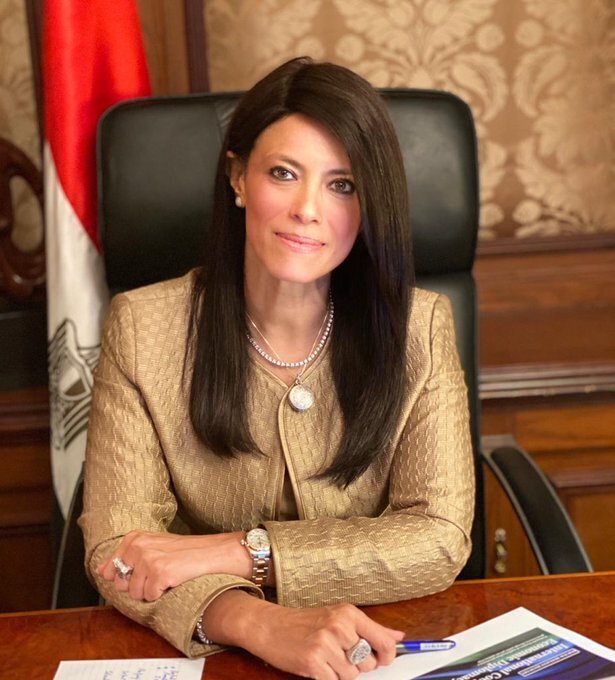
EU adopts new rules to significantly cut packaging waste with re-use targets
The European Union has formally adopted a regulation on packaging and packaging waste. The new ...

Egyptian Minister of International Cooperation Dr. Rania Mashat said Egypt is shifting to the green recovery through focusing on the opportunities of growth and collaboration.
In an article published on the European Investment Bank (EIB), Mashat wrote “We no longer have the luxury of paying lip-service to environmental initiatives. We must plan, act and push for progress. We stand at the precise moment of a transformational period in human history—a moment that requires scaling up interventions and solidarity to change our world for the better.”
As Egypt’s Minister of International Cooperation, I have put all my support behind the push for cooperation around a green and circular economy. The years 2020-2021 must be the ‘Years of Multilateralism,’ as we push the frontiers of international cooperation by building back greener through public-private partnerships.
To reinvigorate green growth, Egypt was able to forge ahead through public-private dialogue and international cooperation. This approach ensures that public leadership meets national priorities and objectives and at the same time engages the private sector to encourage innovation and growth according to the environmental, social and governance (ESG) principles.
To foster dialogue, we mobilize the international community through Multi-Stakeholder Platforms, launched in April 2020. This strengthens partnerships for achieving values-centered results through regular interactive and participatory consultations with all development partners.
We are currently seeing a shift in the conversation on ways to achieve a green future, with the introduction of new concepts such as the ‘people first’ or ‘people-centered’ approach to ensure that people gain the most among all the other stakeholders in a project. A people-first approach essentially pushes for inclusivity to protect the most vulnerable and ensure that ‘green’ and ‘growth’ go together hand-in-hand, striking a balance between expanding economic opportunities and addressing environmental pressures.
The approach achieves these goals through: unlocking social and economic benefits; delivering these benefits to rural or vulnerable populations; and restoring ecosystems in parallel with raising people’s incomes and improving their well-being.
This is reflected in our Global Partnerships Narrative, which focuses on putting people at the core of every project to push Egyptians towards realizing their full potential and identifying the direct impact that our projects have on people.
Egypt’s long-standing partnership with the European Investment Bank (EIB) includes several projects that address climate change. These include the renovation of Cairo Metro Lines 1 and 3, which reduce the number of cars on the road and thereby help reduce traffic congestion and pollution. On top of that, the project impels us towards a more inclusive economy, because it connects remote or rural districts with cities and business districts.
In addition, recently the Board of the European Investment Bank approved a €1.1 billion loan to part-finance the restoration of the Alexandria tram network, the electrification of the Abu Qir-Alexandria railway and the extension of Cairo Metro Line 2.
Another important success story in the partnership with the EIB includes the construction of a 200 MW wind farm on the west coast of the Gulf of Suez. This will contribute to supporting Egypt’s energy reforms that aim to increase the share of renewable energy to 30% by 2030 and promote sustainable growth in Egypt’s economy.
To integrate coastal restoration with other national development plans, Egyptian-Dutch cooperation includes the project ‘Enhancing Climate Change Adaptation on the North Coast of Egypt’, which helps the construction of dikes to prevent the flooding of people’s homes and farmland due to rising sea levels and extreme weather changes.
We are going even further by supporting Egypt’s adaption to climate change, prioritizing integrated solutions that strengthen resilience from future shocks.
For example, Egypt adopted a comprehensive water strategy in 2018 to mitigate water scarcity resulting from climate change and growing consumption. The European Development Partners contribute to the financing of the water and wastewater projects to adapt to climate change. This includes the Kafr El Sheik Wastewater Treatment Plan to which the EIB provided €77 million, the Fayoum Wastewater expansion project with an EIB contribution of €126 million, and the Kitchener Drain project, to which the EIB provided €214 million.
Resilience is at the heart of our project to support one million farmers in 500 villages in partnership with the World Food Program. This successful partnership helps smallholders face future environmental threats through the use of solar power plants and promoting sustainable water management and efficiency through irrigation water supply modalities.
To promote food security, a number of development programs are being implemented in partnership with USAID, which includes the new Luxor wastewater stabilization and treatment plant. This has the capacity to serve up to 332 000 people through 2037 and uses energy-efficient technologies, as well as learning centers that train farmers on how to increase their productivity through applying smart farming technologies.
It is time to recognize the opportunities that exist in going green. We are shifting our narrative from one that focuses on threats to one that puts emphasis on the opportunities of growth, collaboration and implementation of successful projects.
We have to turn the risks into the impetus for radical change, a change to promote a cleaner environment, healthier citizens, a productive and an inclusive economy and choose our people and planet as the main stakeholders.
The European Union has formally adopted a regulation on packaging and packaging waste. The new ...
Inaugurating the Abydos Solar Power Plant in the Upper Egypt governorate of Aswan represents a ...
Businesses that fail to adapt to climate risks like extreme heat could lose up to ...


اترك تعليقا